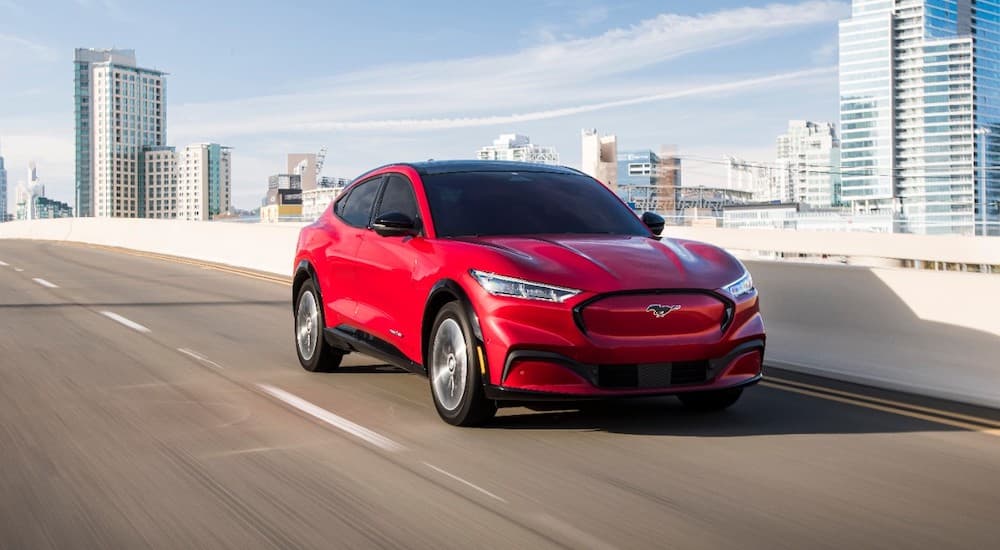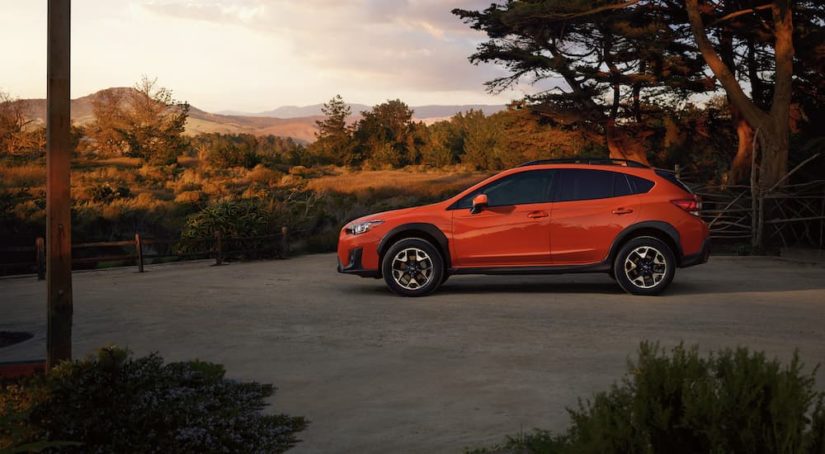Buying a car in today’s economy represents a major investment for most people. Automotive prices have seen a sharp rise over the last 20 years, so the purchase of a new automobile needs to bring longevity. Fortunately, the price increases have come with a plethora of new and innovative technology and safety features that make for a safer, more complete vehicle. Additionally, engine and drivetrain technology has come a long way in the last two decades, making fuel efficiency a focus while still allowing for all of the capability of previous engines. While automobiles are now more expensive, they are also built safer and with longevity in mind, ensuring that a driver’s purchase should last for a long period of time, making it worth the initial investment. Selecting and applying for financing has also become a streamlined process, with online car dealerships allowing customers to browse selections from the comfort of their own homes. When endeavoring to make such a major purchase, it is all the more important to ensure that you are making the best choice for your lifestyle. Here are some factors to consider when purchasing a new car.
Determine Your Budget
Price is probably the biggest consideration when it comes to purchasing a new vehicle. Making sure the vehicle is affordable for your budget is a critical part of the decision. But it’s not just about the overall price tag. The first step is calculating your budget to make sure that you have room for the payments and the maintenance. Oil changes, tire rotations, and more are all key to ensuring that your vehicle lasts for a long time. It sounds like a self-explanatory process, but it is still one many first-time buyers tend to overlook.
Now, in regard to budget, the overall price tag is not the chief concern. It’s not about looking at a dealership and just buying the cheapest available automobile. That’s not a smart way to carshop. The first thing a serious buyer has to ask themselves is, “what do I need this car to be able to do?” That is often the most critical question. Function and utility are arguably the two best selling points of a new car. Generally speaking, you are looking for a vehicle that encompasses as many of the features on your wishlist as possible at the lowest price point.
The third budget factor is fuel efficiency. Consider the type of driving that you’ll be doing. For example, if you’re a driver that does long-distance highway commutes daily, interior comfort, entertainment, and fuel efficiency would be at the top of your list. Fuel efficiency is one of those factors that is weighted in terms of the type of driving. For close-distance city drivers, it will likely be less of a concern. Additionally, the evolution of the electric car has changed the game, as buying an electric car takes fuel out of the equation entirely. However, it would be wise to also factor in increased electric bills for charging the battery. Additionally, you will want to have easy access to a 240V outlet in your garage or driveway as relying on public charging stations is a suboptimal situation.

Consider Utility and Features
As mentioned above, when shopping for a new car, it is important to make features a focal point of your search, comparing how those features factor into the usage you intend to put the vehicle through. For example, if you’re in the market for a pickup truck, and your job requires long commutes to job sites while towing, your focus should be on a few factors. The first is obviously the towing capability and power of the engine. The second is the comfort of the interior, and the third honorable mention is fuel efficiency. Now, no engine that has the power to tow massive loads is going to fit into the category of “fuel-efficient,” but it’s about weighing the factors. Finding a truck that tows with the desired weight, has the comfort features required to make the most out of your long commutes, and is as efficient as possible for vehicles of its class and capabilities. You then compare all of that to the overall cost, model by model, until you’ve determined the best deal for you as an individual driver.
For another example, let’s say that you’re a driver that fluctuates between driving with several passengers and also transporting supplies. In this case, you don’t need a truck, that would be too big. Any compact cars would be too small, so you’re left midsize sedans or crossover SUVs as your best available options. You would then go through the list of options and features, this time likely prioritizing cargo space and safety. So, then you would comb through all the available makes and models to see what options prioritize what you’re looking for. Once you have a list, you compare their prices to your budget. From there, you can narrow down your list. It’s not about picking the cheapest option on that list, but about picking the option that gives you the most of what you need for minimal cost.
The Electric vs Gas Debate
Electric vehicles have certainly come a long way in today’s world. With climate change concerns looming, reducing fossil fuel use is now more than ever. Electric cars certainly have their appeal. Models like the Tesla Model 3 and Ford Mustang Mach-E, for example, provide a battery capable of going over 300 miles on a single charge, which alleviates one of the biggest concerns about the capabilities of cars that run solely on electricity. Additionally, EVs require much less maintenance than their traditional gasoline-powered counterparts. This helps save even more money as time goes on.
The flip side to that coin is that when something does break, it usually requires a hard-to-find mechanic that specializes in electric vehicles, and parts are generally much more costly. The mechanic aspect alone can make them an inefficient purchase for people living in rural areas. The allure of EVs overall is at this point highly location-dependent, with big cities that have installed adequate charging ports having the most electric car appeal. Gasoline engines are still highly sought after, and the combination of electric and gas motors in plug-in hybrid vehicles like the Toyota RAV4 Prime and Jeep Wrangler 4xe provide a nice middle-ground for potential buyers. These models provide a sense of familiarity while still saving the driver money at the gas pump.

Find the Right Vehicle for You
When it comes to investing in a new vehicle, the importance is on being an educated consumer. Taking the time to analyze your needs as a driver and deciding what capabilities and features you deem as the most important is crucial. Just because a vehicle is the cheapest, or fastest, or safest, doesn’t automatically make it the best fit for your personal needs. Doing your research before you shop may seem like a lot of effort, but it makes the rest of the process far easier. From there, it is only a matter of finding the best possible vehicles for your style and needs and selecting the one that gives you the most bang for your buck. Like anything in life, the more you know, the better off you will be.



